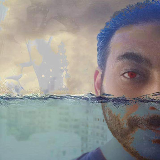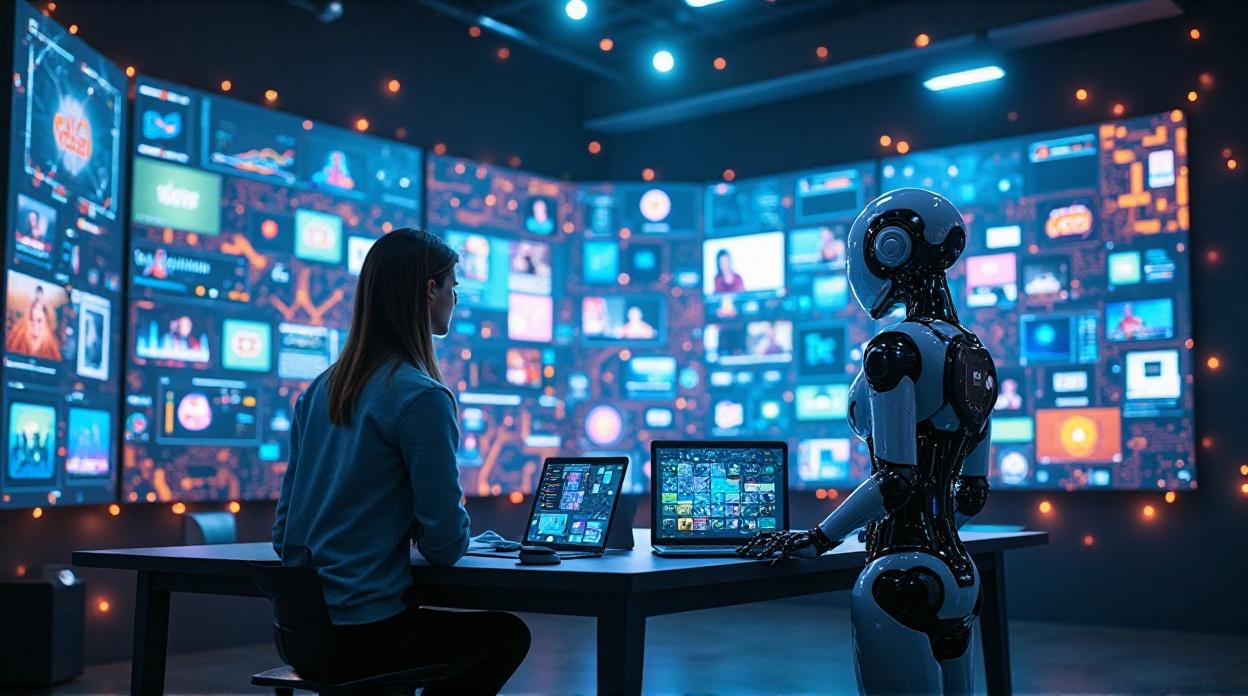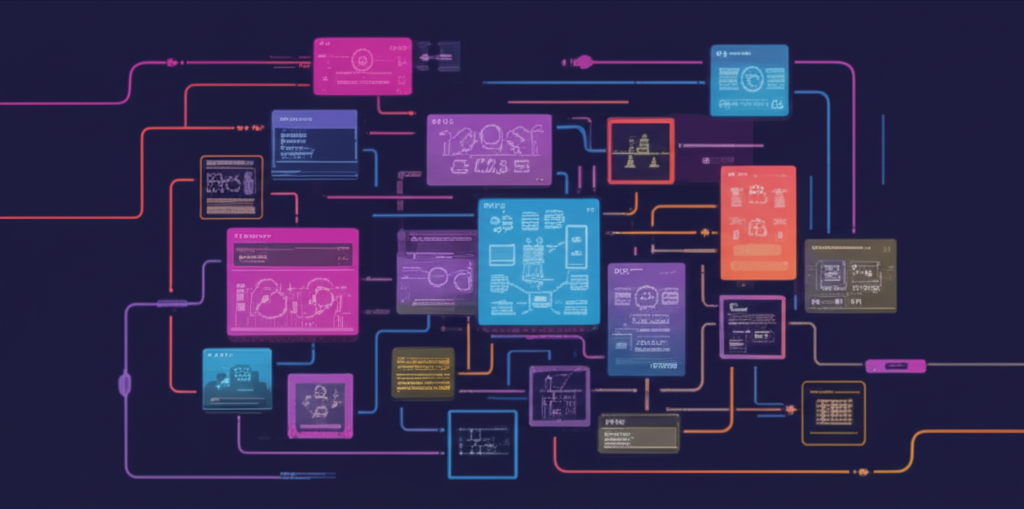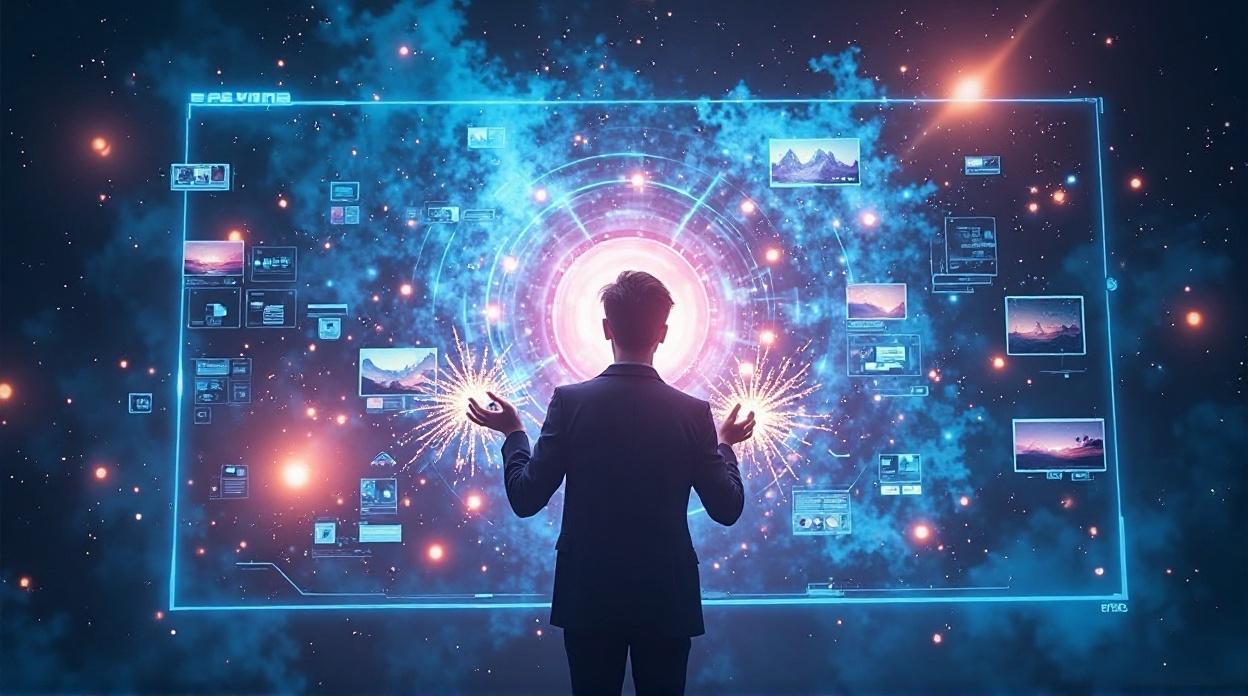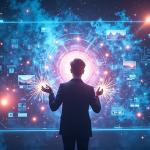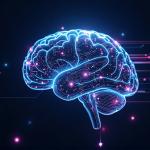Intelligent Media AI
From Sci-Fi Dreams to Your Daily Feed - How AI is Reshaping the Creative Universe
From Sci-Fi Dream to Your Daily Feed
Hey, remember when AI was just in movies? HAL 9000, Skynet, the usual suspects. Well, the future is decidedly now, and AI isn't just beating chess masters anymore. It's rewriting, remixing, and redefining the very fabric of the media you consume every single day. It's in the personalized recommendations, the subtly altered ads, the uncanny realism of that video game character.
Welcome to the era of "Intelligent Media AI"– where the lines between human and machine creativity are blurrier than ever before. A boundary, once so clearly defined, now resembles a watercolor painting left out in the rain.
This isn't just a tech upgrade; it's a cultural earthquake. The Richter scale is off the charts. So, let's unbox what's really happening, dissect the implications, and maybe even find a glimmer of where this wild ride is taking us.
What Exactly is "Intelligent Media AI," Anyway?
"Intelligent Media AI" isn't just another tool in the box. It's more akin to replacing the toolbox with a hyper-efficient, self-learning robotic arm. It's a game-changer, touching every part of how content is made and consumed – from the initial scribbles of an idea to the moment you hit 'publish' on that blog post (or, perhaps, when the AI hits 'publish' for you!).
"Co-creativity"is the new buzzword, and it's apt. Think of AI as your super-powered sidekick, your brainstorming buddy, or the muse that kicks creative blocks to the curb with the force of a thousand suns.
It's about making magic easy. Whether it's DALL-E whipping up wild images from a few textual prompts, AI composing a symphony that would make Mozart weep (with joy, or perhaps existential dread), or crafting a catchy ad slogan that burrows its way into your subconscious, it's about making creation accessible to everyone. The democratization of art, perhaps? Or the dilution of its essence? The jury's still out.
But let's not get lost in the techno-utopian vision. The big picture involves boosting efficiency and personalizing your experience but also stirring up some serious questions about jobs, ethics, and who owns what in this brave new world.
A Blast from the Past: How Did We Get Here?
The OG Days (1950s-1980s)
Back then, it wasn't so "intelligent." But the seeds of today's revolution were indeed planted. We saw rule-based systems attempting to compose music, like the "Illiac Suite" in '57 – a fascinating, if somewhat dissonant, glimpse into the future. Then there was ELIZA from '66, a chatbot that offered a rudimentary form of conversation, hinting at the AI companions to come.
Learning to Learn (1980s-2000s)
Enter Machine Learning! AI began to learn from data instead of just following rigid, pre-programmed rules. This was transformative. Remember David Cope's AI imitating classical composers? Wild stuff, eliciting both awe and accusations of sacrilege. The internet exploded, giving AI tons of data to chew on for personalized news and even automated sports reports.
The "Superhero" Phase (2010s-Now)
Deep learning and neural networks unlocked "human-like" generation capabilities that were previously confined to the realm of science fiction. GANs created hyper-realistic images (2014), and then came the Transformer network (2017), giving us GPT models. The "generative AI boom" (2020 onwards) brought us DALL-E, Midjourney, AI scriptwriters, AI musicians, and even AI voice cloning.
The Good, The Bad, and The AI
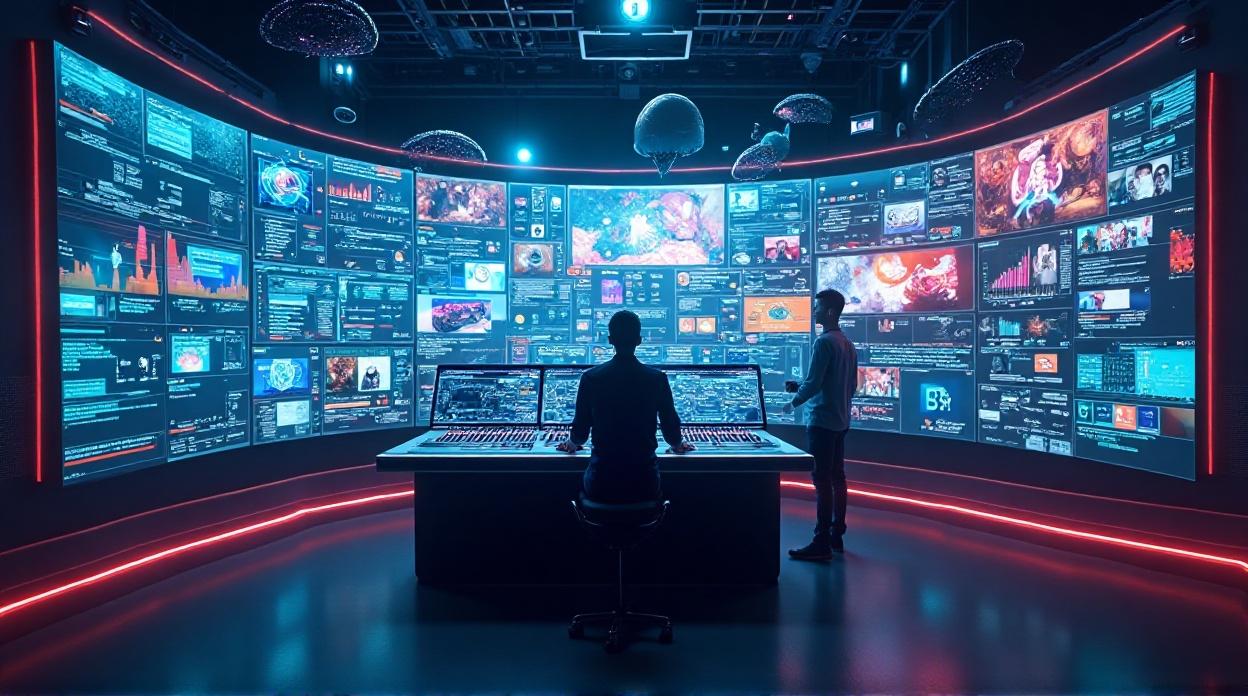
The Hype Train (Opportunities)
- Efficiency on steroids:AI zips through dull tasks like drafting boilerplate articles or editing videos, freeing up humans for the juicy, creative stuff.
- Your personal content concierge:Netflix and Spotify ain't got nothing on future AI. It's learning what you love and serving up hyper-tailored content.
- Artistic liberation:No art school? No problem! AI tools are letting anyone dabble in visual art, music, and writing.
The Reality Check (Concerns)
- Trust issues:Can you believe what you read/see if AI wrote/created it? The worries about accuracy, bias, and misinformation are very real.
- The "human touch" dilemma:Is journalism losing its soul to algorithms? Are traditional creative skills becoming obsolete?
- "Innovation Fatigue":Are we heading for a content overload where everything feels same-y?
Mind the Minefield: The Big Controversies Brewing
"Are Bots Taking Our Jobs?!"
This is the elephant in the room. Writers, designers, journalists – many are worried AI is coming for their livelihoods. Some reports suggest that a significant percentage of media jobs could be automated within the next decade. Is it augmentation or outright replacement?
The Ethics Tightrope Walk
Bias in, bias out: AI learns from existing data, and if that data is biased, AI will amplify those biases. Transparency & Accountability: How do these algorithms work? Who's responsible when AI messes up? Privacy nightmares: AI needs tons of data to function.
"Is It Real?!" (Misinformation & Deepfakes)
AI can cook up super-convincing fake news, images, and videos (deepfakes). This isn't just annoying; it erodes trust, influences elections, and makes it increasingly impossible to discern what's true.
Crystal Ball Gazing: What's Next for AI in Media?
Mega Growth Ahead
This isn't a fad. The AI media industry is projected to experience exponential growth.
Ultra-Personalized Future
AI will know you better than you know yourself, serving up hyper-tailored content.
Hollywood's New Star
AI will streamline film/TV production – from script to screen with faster editing and better VFX.
Immersive Worlds
VR and AR experiences powered by AI will get wild, making media truly interactive.
Human-AI Team-Up
The consensus isn't AI replacing humans, but AI as a "creative co-pilot."
The Ethical Gauntlet
Expect more robust fact-checking and clear ethical guidelines around AI bias and privacy.
Navigating the New Frontier
Intelligent media AI is undeniably reshaping creativity, content, and culture at lightning speed. It's a force as powerful as it is unpredictable.
It's a powerful force for efficiency, personalization, and artistic accessibility, potentially unlocking a new era of creativity and expression.
But it comes with serious ethical, legal, and societal questions that we need to address head-on: jobs, trust, ownership, and bias are just the tip of the iceberg.
The future isn't about AI or humans; it's about how we collaborate, adapt, and build a media landscape that serves us all, one that is both innovative and ethical, efficient and human.
What role will you play in shaping it?
Leave a comment
Your email address will not be published. Required fields are marked *

